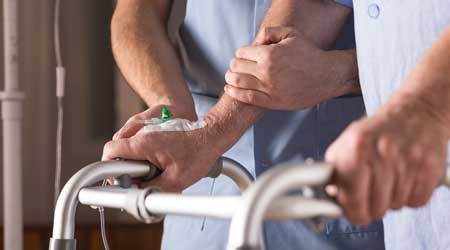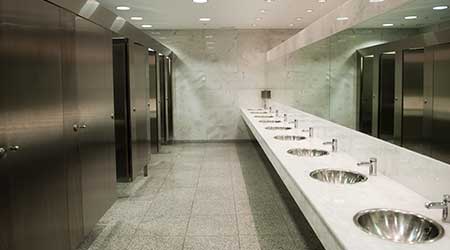
New Game-Changing Wellness Rating System Covers Existing Buildings
June 10, 2020
The International WELL Building Institute (IWBI) has made a potentially game-changing announcement: It has launched a new suite of strategies called WELL Health-Safety Rating that covers health and wellness strategies in facility management, operations, and maintenance across a wide variety of building types.
Why is this announcement so important? Because in the past, the various health and wellness-focused rating systems, including WELL, while applicable to existing buildings, were mostly intended to be used by designers working on new buildings. WELL Health-Safety Rating changes that, giving facility managers access to a WELL rating system for their existing buildings. This new rating system has the potential to move the market in the same way LEED for Existing Buildings (now called LEED for Operations and Maintenance) made it easier for facility managers to implement and be recognized for sustainability strategies.
Occupants returning to work in the middle of this pandemic are naturally going to be anxious about getting sick. So health and wellness strategies are no longer “nice-to-haves” and are now “musts.” WELL Health-Safety Rating gives guidance on how to do this, with credits pulled from the original WELL rating systems but tailored specifically to the unique challenges of existing buildings.
Based on guidance from IWBI’s COVID-19 task force, a group of 600 professionals who offered input on how to make existing buildings healthy and safe, the new WELL Health-Safety Rating will begin accepting new registrations later in June. A previous version of WELL Health-Safety Rating had been recently released for sports and entertainment venues. And WELL Health-Safety Rating builds on the organization’s COVID-19 task force recommendations for health and wellness strategies to support the fight against COVID-19.
“Our buildings and the people who tend them are our first line of defense for keeping us safe and healthy,” said Rachel Gutter, president of IWBI, “and the current pandemic has confirmed that health is a material economic consideration of the first order. These two simple truths stand at the nexus of our work to date and will, along with the hard evidence that is mounting, inform all our decisions about the critical need for better buildings, more vibrant communities and stronger organizations going forward.”
This post was submitted by Greg Zimmerman, executive editor, Building Operating Management and FacilitiesNet.com.
Next
Read next on FacilitiesNet












